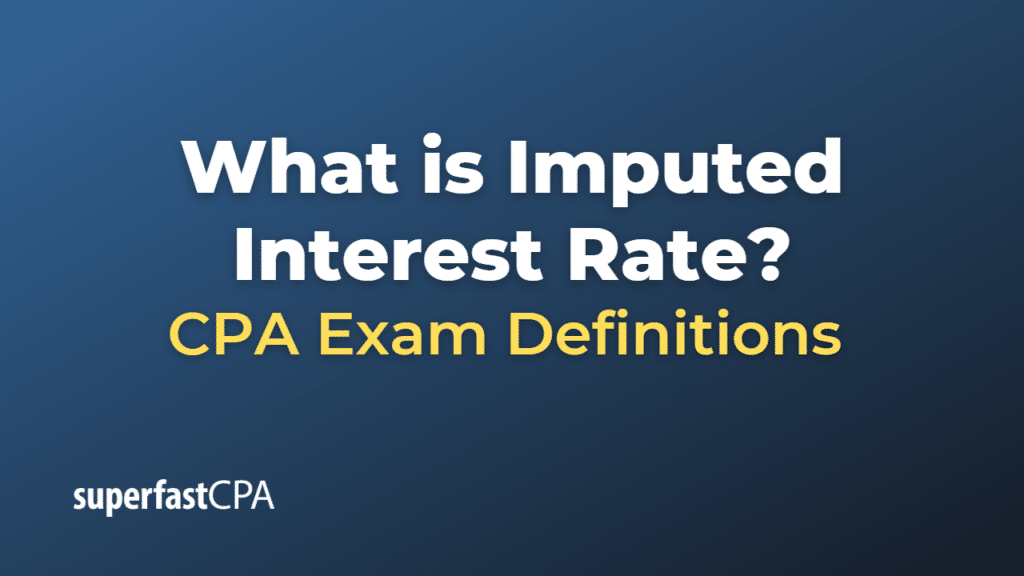Imputed Interest Rate
An imputed interest rate is an inferred or estimated interest rate used when a loan or financial instrument does not have an explicit interest rate, or when the stated interest rate is significantly below market rates. The concept is often used in relation to related-party transactions, such as loans between family members or between a parent company and its subsidiary.
One common scenario for imputing interest rates is when a loan is made without an interest rate or with a very low rate. In such cases, the Internal Revenue Service (IRS) in the United States, or similar tax authorities in other countries, may apply an imputed interest rate to determine the taxable interest income that should have been reported by the lender, and the interest expense that should have been reported by the borrower. The imputed rate is often based on a minimum rate set by the tax authorities, such as the Applicable Federal Rate (AFR) in the U.S.
For example, if a parent company makes a loan to a subsidiary with no interest or a below-market interest rate, the tax authorities may impute an interest rate to reflect the market cost of borrowing. The parent company would then need to report the imputed interest as income, and the subsidiary would report it as an expense.
Imputing an interest rate can also be important for financial accounting purposes, to more accurately reflect the cost of borrowing in a company’s financial statements.
Keep in mind that this concept can vary depending on jurisdictions and their respective tax laws. It is always best to consult a tax professional for guidance on specific scenarios.
Example of an Imputed Interest Rate
Let’s say a father loans his son $50,000 to start a small business. They agree that the loan will be interest-free and the son will repay the full amount in 5 years.
However, the Internal Revenue Service (IRS) stipulates that most loans, even those between family members, must carry a minimum interest rate, known as the Applicable Federal Rate (AFR). Suppose the AFR for this type of loan is 2%.
The father, in reality, is lending the money at 0% interest, but the IRS imputes an interest rate of 2%. Therefore, for each year of the loan’s term, the father is considered to have received interest income, and the son to have paid interest expense, of 2% of $50,000, which is $1,000.
Over the 5-year term of the loan, this would amount to $5,000 in imputed interest. Even though no actual interest payments are made, the father would be expected to report this ,000 as interest income on his tax returns, and the son may be able to deduct it as interest expense for his business.
This is a simplification of the actual tax rules, which can be complex and have various exceptions and special cases. For example, there is an exception for gift loans between individuals if the loan amount is below a certain threshold. Also, the exact way to calculate the imputed interest can vary depending on the specifics of the loan.
This is why it’s important for anyone considering making or receiving a loan at a below-market interest rate to consult with a tax professional to understand the potential tax implications.













